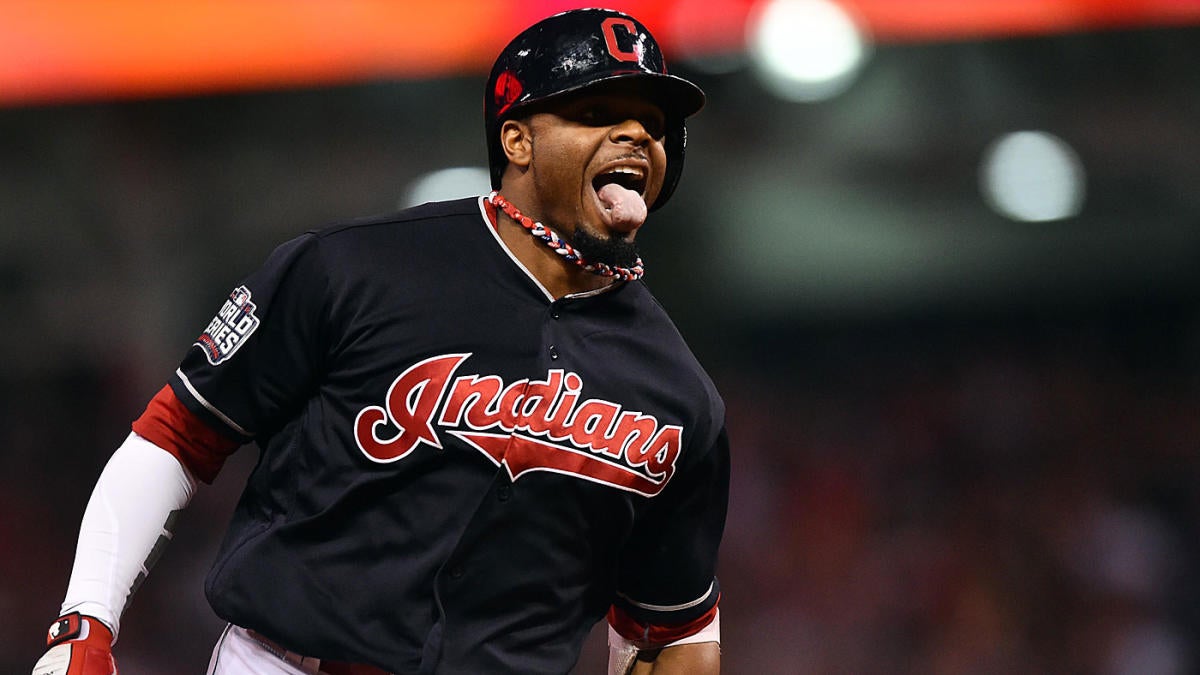

#2016 world series game 7 rating and viewers tv#
We expected the Cleveland and Chicago TV numbers to be insane, though. and 27.2 at 12:30, according to Mulvihill.

During and after the 17-minute delay, the ratings understandably dropped - to 24.3 at midnight, 27.0 at 12:15 a.m. Nationally, the game peaked at 31.1 at 11:30. By the end of the ninth inning, when the game was even at 6, the rating was up to 53.8 here. The Cleveland rating prior to Rajai Davis' jaw-dropping, game-tying homer in the eighth inning was 41.3 at 10:45 p.m., according to Mulvihill. The peak numbers for Cleveland came much earlier - a 55.6 rating and 74 share at 8:45. The seven-game average for Chicago was a 38.9 rating - a tad above the 2016 NBA Finals ratings in Cleveland, only in a market that is more than twice the size.įox Sports' Michael Mulvihill, whose timeline was gold if you enjoy TV ratings numbers, said the Game 7 rating peaked at a 58.0 and 77 share at 11 p.m. Game 7 drew a 51.2 rating, the best ever for baseball in Chicago, and was watched by 71% of the households in the market. The numbers were also staggering for the Chicago market - which, at 3.48 million, has almost 2 million more TV homes than Cleveland, according to Nielsen. The World Series had four games that topped a 40 rating in Cleveland, and Games 2 (38.9), 3 (39.2) and 4 (39.8) weren't that far off. (tie) 2016 World Series, Games 5 and 7: 48.6 Since LeBron James returned to the Cavs, Cleveland's three championship series - the 2015 and '16 NBA Finals, and the '16 World Series - have produced six ratings above 45. The latter number falls just short of the ratings norm for the 2015 NBA Finals (43.7), but is 4.5 points better than the 2016 Finals (38.8). The 48.6 rating for Game 7 matched the number for Game 5, and gave the World Series in Cleveland an average rating of 43.3. Game 7 generated a 48.6 rating and 69 share in Cleveland, which is even more incredible when you factor in the length of the game, the 17-minute rain delay that interrupted the Tribe's momentum and that the Cubs jumped out to what looked like a commanding lead in the fifth inning. The TV ratings in the Cleveland and Chicago markets were as breath-taking as the series. The Cubs' huge following obviously has a ton to do with that.īut so did the Indians, who took the best team in baseball to the brink of elimination. The 2016 NBA Finals had an impressive viewership norm of 20.2 million, but the World Series will end up topping it by almost three million. The Cavs-Warriors finale posted an 18.9 overnight rating and was watched by 30.8 million viewers - more than 9 million shy of Cubs-Indians. The Game 7 rating also crushed the numbers for another phenomenal Game 7 - the Cavs' title-clinching victory over the Golden State Warriors on June 19. Wednesday's 4-hour, 28-minute classic was watched by more than 40 million people ( the most for an MLB game in 25 years), which means once the final numbers are tabulated, the Cubs-Indians series will be the most-watched Fall Classic since an average of 25.4 million viewers saw the Boston Red Sox break their version of the curse by sweeping the St. The Cubs-Indians finale was watched by 40% of the nation's TV homes.Įntering Game 7, the World Series had been averaging about 20 million viewers. The share - the percentage of TV homes watching the broadcast - was actually higher for Game 7 on Wednesday night. That game produced a 27.0 rating and 38 share. The overnight rating for the Cubs' 8-7 win over the Tribe was 25.2, making it the most-watched telecast aside from the Super Bowl in 2016, and the best baseball rating since the Arizona Diamondbacks' 3-2 win over the New York Yankees in Game 7 of the 2001 World Series.

Indians in the World Series was exactly the spark the sport needed - here and nationally.Ĭase in point: the staggering TV ratings for Game 7, which capped a stellar week's worth of audiences for Fox and MLB. And the seven-game classic that was Cubs vs. Baseball still has its share of problems.īut if you were among the many who had questioned the health of the game, the 2016 playoffs - and especially the World Series - should have negated at least some of your concerns.Ĭaptivating teams and players can still produce huge audiences and crazy revenues.


 0 kommentar(er)
0 kommentar(er)
